asp.net core IdentityServer4 实现 implicit(隐式许可)实现第三方登录
前言
OAuth 2.0默认四种授权模式(GrantType)
- 授权码模式(authorization_code)
- 简化模式(implicit)
- 密码模式(resource owner password) credentials)
- 客户端模式(client_credentials)
本章主要介绍简化模式(implicit)
,不通过第三方应用程序的服务器,直接在浏览器中向认证服务器申请令牌,跳过了"授权码"这个步骤,因此得名。所有步骤在浏览器中完成,令牌对访问者是可见的,且客户端不需要认证。
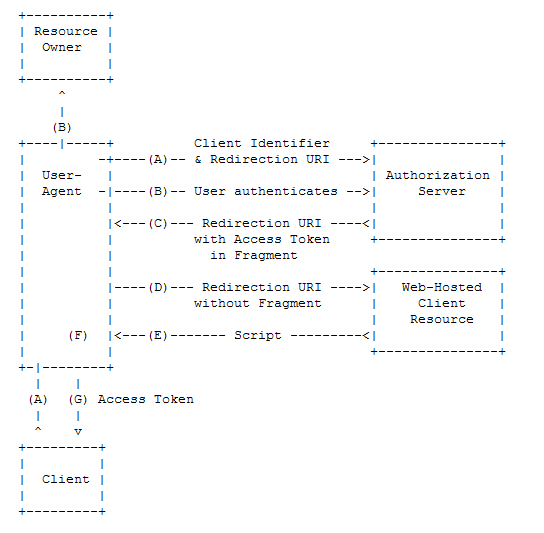
认证步骤
- 客户端携带客户端标识以及重定向URI到授权服务器;
- 用户确认是否要授权给客户端;
- 授权服务器得到许可后,跳转到指定的重定向地址,并将令牌也包含在了里面;
- 客户端不携带上次获取到的包含令牌的片段,去请求资源服务器;
- 资源服务器会向浏览器返回一个脚本;
- 浏览器会根据上一步返回的脚本,去提取在C步骤中获取到的令牌;
- 浏览器将令牌推送给客户端。
配置认证授权服务器
Package
PM> Install-package IdentityServer4 -version 2.5.3
创建一个类Config(配置要保护的资源,和可以访问的API的客户端服务器)
public class Config
{
/// <summary>
/// 定义身份资源
/// </summary>
/// <returns></returns>
public static IEnumerable<IdentityResource> GetIdentityResources()
{
return new List<IdentityResource>
{
new IdentityResources.OpenId(),
new IdentityResources.Profile(),
new IdentityResources.Email()
};
}
/// <summary>
/// 定义授权客户端
/// </summary>
/// <returns></returns>
public static IEnumerable<Client> GetClients()
{
return new List<Client>
{
new Client{
ClientId="mvc",
ClientName="MyClient",
AllowedGrantTypes=GrantTypes.Implicit,
RedirectUris = { "http://localhost:5003/signin-oidc" },//跳转登录到的客户端的地址
PostLogoutRedirectUris = { "http://localhost:5003/signout-callback-oidc" },//跳转登出到的客户端的地址
AllowedScopes = new List<string>
{
IdentityServerConstants.StandardScopes.OpenId,
IdentityServerConstants.StandardScopes.Profile,
IdentityServerConstants.StandardScopes.Email
},
RequireConsent=false
}
};
}
}
配置Startup
再走到ConfigureServices方法注入IdentityServer4服务
services.AddIdentityServer()
.AddDeveloperSigningCredential()
.AddInMemoryIdentityResources(Config.GetIdentityResources())
.AddInMemoryClients(Config.GetClients())
.AddTestUsers(TestUsers.Users);
在Configure方法中添加IdentityServer4服务中间件
app.UseIdentityServer();
新建客户端
配置Startup
再走到ConfigureServices方法注入IdentityServer4服务
JwtSecurityTokenHandler.DefaultInboundClaimTypeMap.Clear();
services.AddAuthentication(options =>
{
options.DefaultScheme = "Cookies";
options.DefaultChallengeScheme = "oidc";
})
.AddCookie("Cookies")
.AddOpenIdConnect("oidc", options =>
{
options.Authority = "http://localhost:5004";
options.RequireHttpsMetadata = false;
options.ClientId = "mvc";
options.SaveTokens = true;
options.GetClaimsFromUserInfoEndpoint = true;
});
在Configure方法中添加认证服务中间件
app.UseAuthentication();
Run
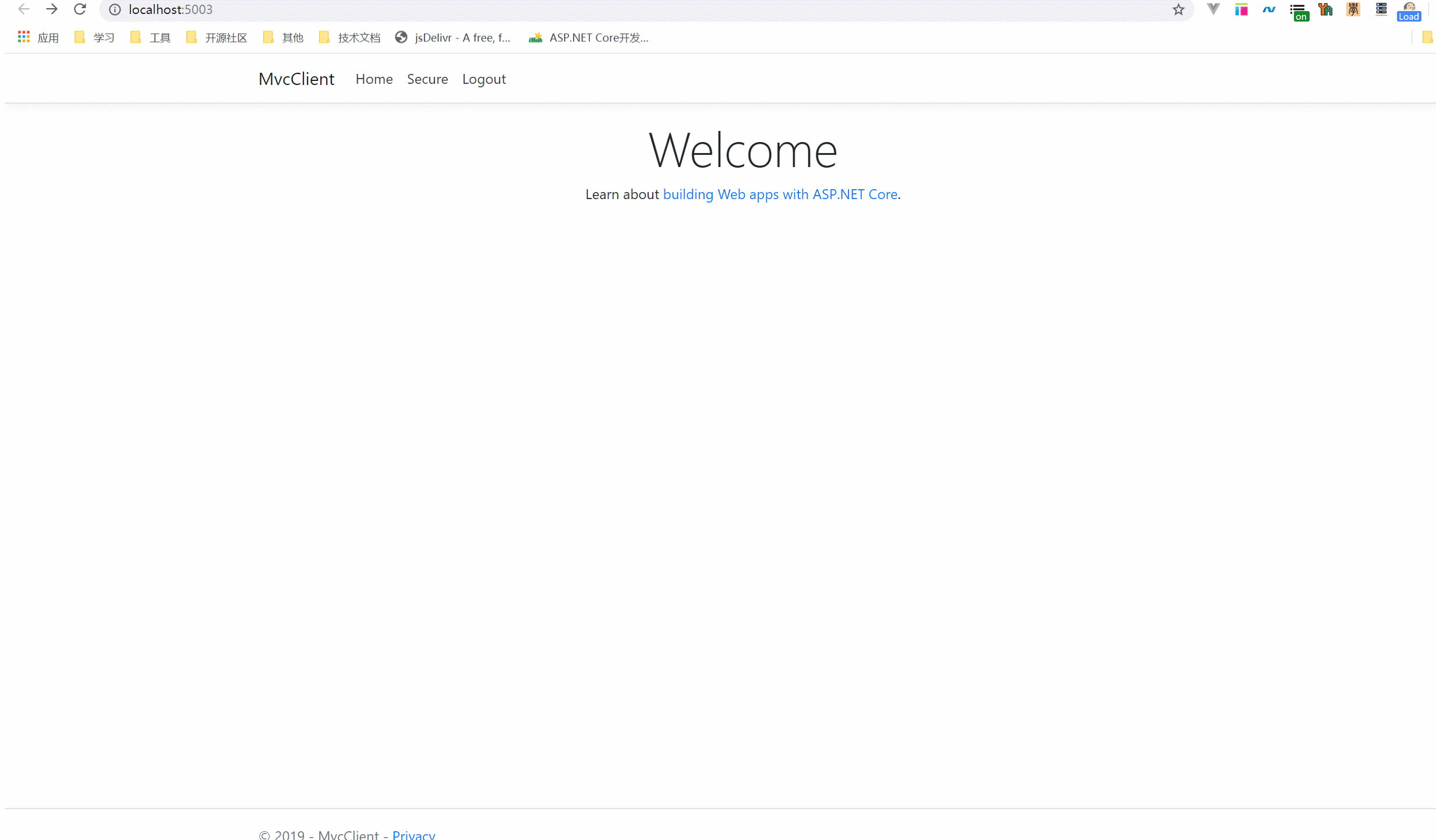
添加第三方快捷登录(github)
在授权服务器ConfigureServices注入
直接贴代码吧
public void ConfigureServices(IServiceCollection services)
{
services.AddMvc();
services.AddIdentityServer()
.AddDeveloperSigningCredential()
.AddInMemoryIdentityResources(Config.GetIdentityResources())
.AddInMemoryClients(Config.GetClients())
.AddTestUsers(TestUsers.Users);
services.AddAuthentication().AddGitHub(options =>
{
options.SignInScheme = IdentityServerConstants.ExternalCookieAuthenticationScheme;
options.ClientId = "your client";
options.ClientSecret = "your Secret";
});
}
Run
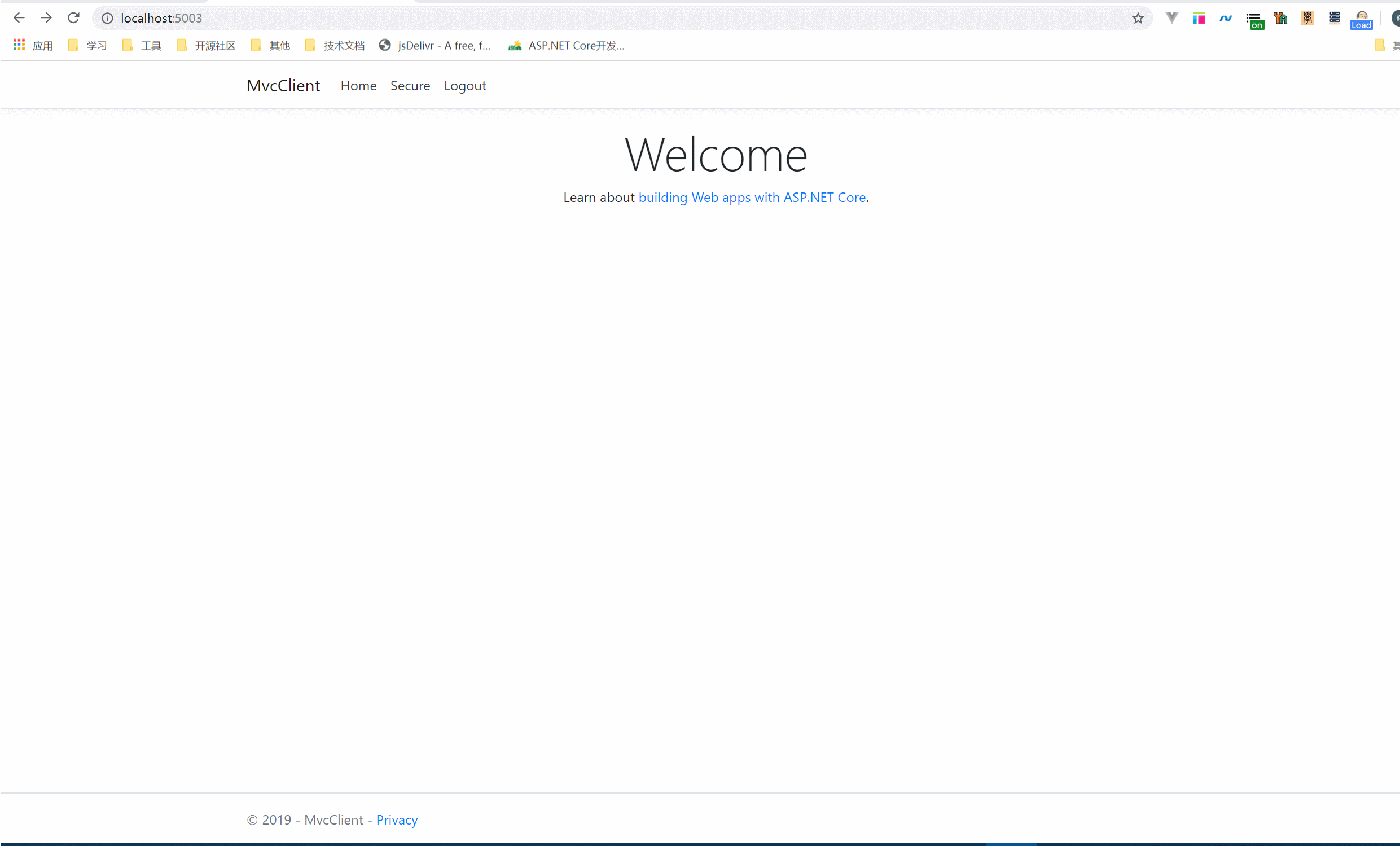
登录成功后可以获取到声明的ClaimsIdentity
页面大家可以通过 https://github.com/IdentityServer/IdentityServer4.Templates进行下载
,或者通过命令dotnet new -i identityserver4.templates进行下载
github 可以到
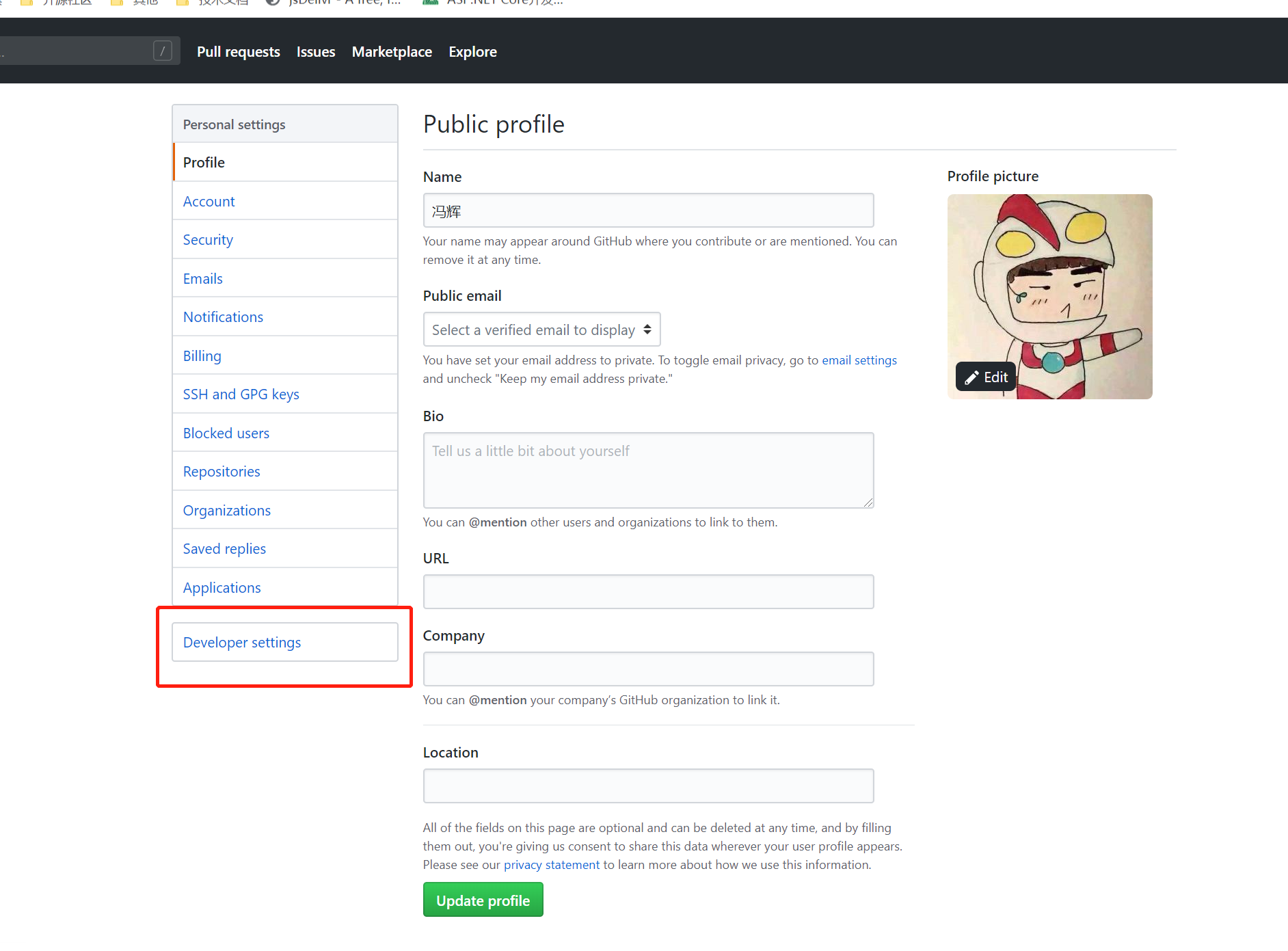
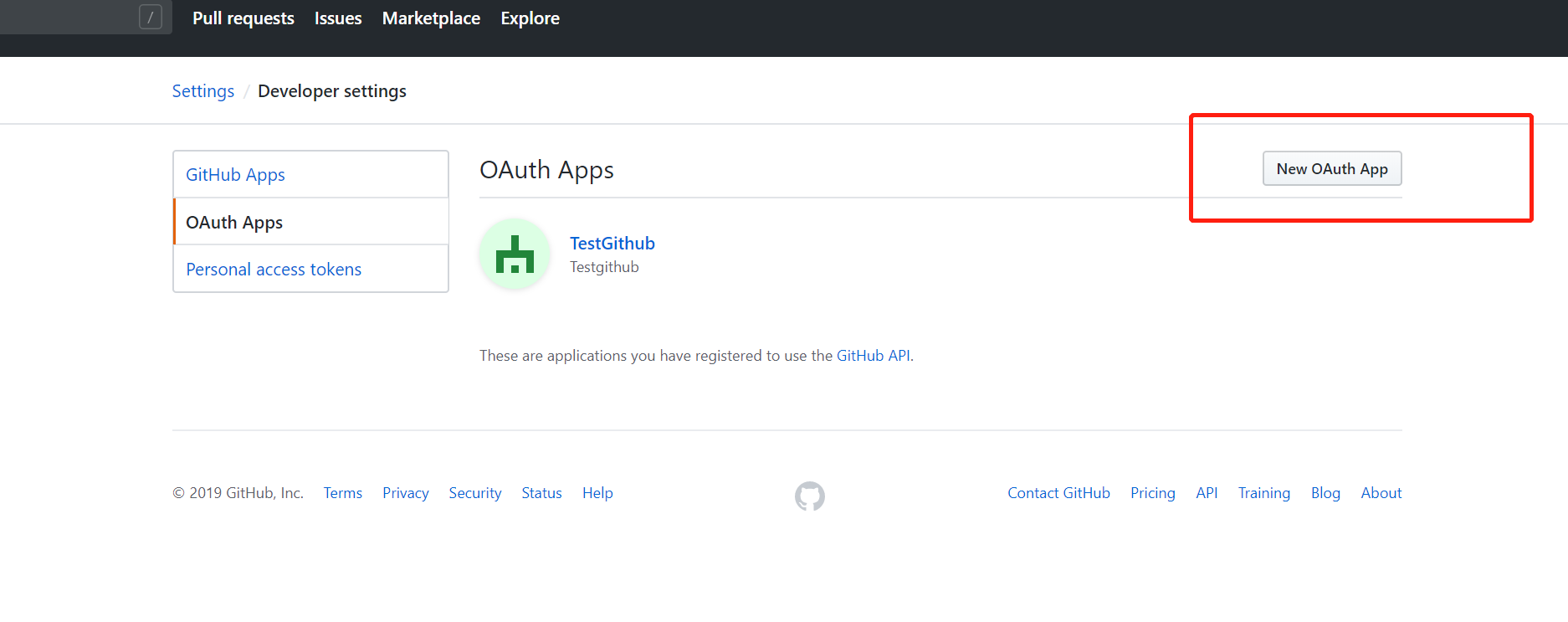
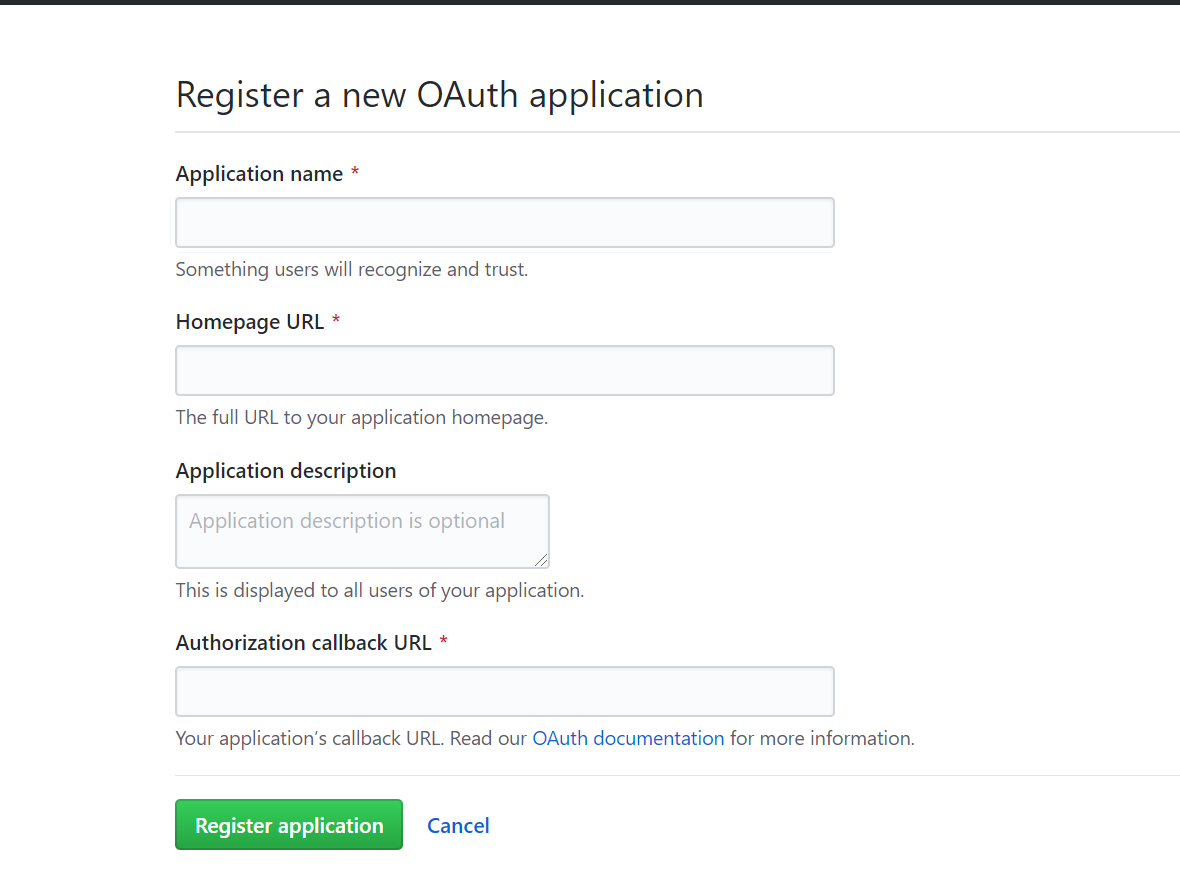
注册完应用就会有应用编码和密钥了
概要
参考:http://www.ruanyifeng.com/blog/2014/05/oauth_2_0.html
Demo:https://github.com/fhcodegit/IdentityServer4.Samples/tree/master/Quickstarts/ImplicitFlowAuthentication





【推荐】国内首个AI IDE,深度理解中文开发场景,立即下载体验Trae
【推荐】编程新体验,更懂你的AI,立即体验豆包MarsCode编程助手
【推荐】抖音旗下AI助手豆包,你的智能百科全书,全免费不限次数
【推荐】轻量又高性能的 SSH 工具 IShell:AI 加持,快人一步
· .NET Core 中如何实现缓存的预热?
· 从 HTTP 原因短语缺失研究 HTTP/2 和 HTTP/3 的设计差异
· AI与.NET技术实操系列:向量存储与相似性搜索在 .NET 中的实现
· 基于Microsoft.Extensions.AI核心库实现RAG应用
· Linux系列:如何用heaptrack跟踪.NET程序的非托管内存泄露
· TypeScript + Deepseek 打造卜卦网站:技术与玄学的结合
· 阿里巴巴 QwQ-32B真的超越了 DeepSeek R-1吗?
· 【译】Visual Studio 中新的强大生产力特性
· 10年+ .NET Coder 心语 ── 封装的思维:从隐藏、稳定开始理解其本质意义
· 【设计模式】告别冗长if-else语句:使用策略模式优化代码结构